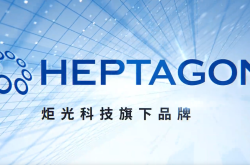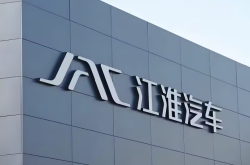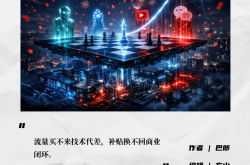Why Did People's Daily Highlight Wei Jianjun Following Ren Zhengfei?
![]() 07/21 2025
07/21 2025
![]() 537
537
After Huawei's Ren Zhengfei, another company and its leader have graced the front page of People's Daily.
On July 20, People's Daily featured an article titled "Great Wall Motors Adheres to Independent R&D and Innovation - Focuses on Strengthening and Expanding National Brands" on its prestigious front page.
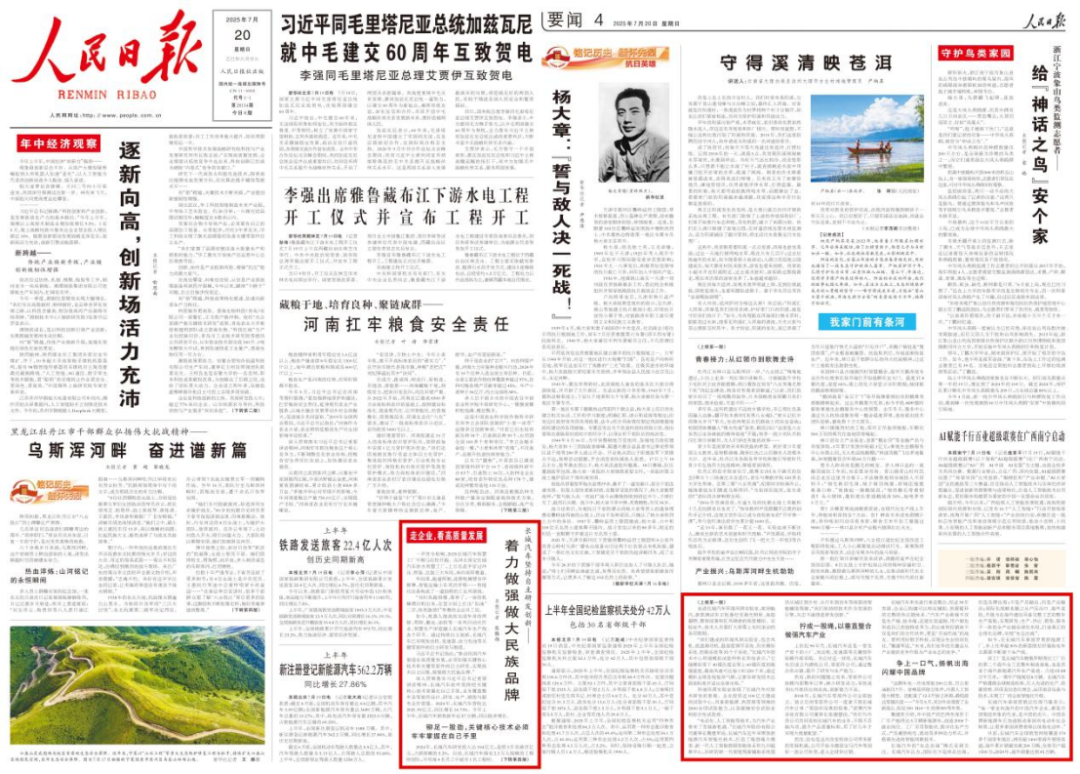
The front page of People's Daily serves as one of the most significant and authoritative platforms for observing economic and policy trends in society. Its layout is meticulously curated, with each selection carrying significance beyond its immediate content.
Following Huawei and Ren Zhengfei, the prominent placement of Great Wall Motors and Wei Jianjun on the front page signaled the recognition of Great Wall's 35 years of perseverance. It also acknowledged the corporate development model and entrepreneurial spirit represented by Great Wall Motors and Wei Jianjun, respectively.
Automotive 'Stubborn' Entrepreneurs' Dedication to the Nation
A business is shaped by its people, and the character of a business is often intertwined with that of its founder.
To understand Great Wall Motors, one must first comprehend Wei Jianjun. His near-obsessive perseverance and deep affection for technology, industry, and country form the core of the rarest entrepreneurial spirit in China today.
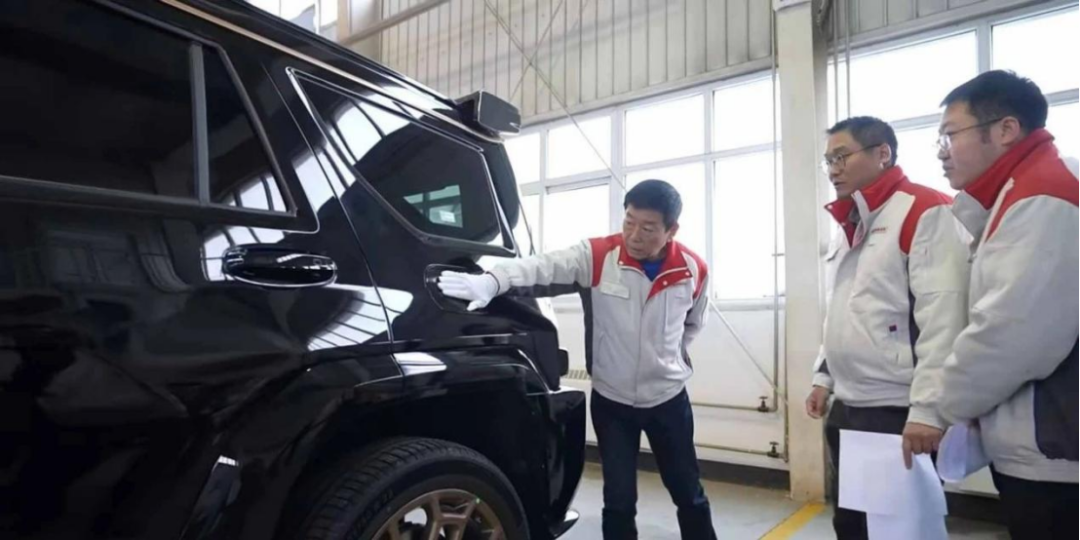
The most direct manifestation of this spirit is the relentless pursuit of serving the nation through technology, a national pride that dares to confront the 'impossible'.
Pinecone Finance notes that the People's Daily report consistently emphasizes a core concept: 'independent R&D of key core technologies and components.' This aligns with the principles of self-reliance and self-improvement in technology.
This is the advice of the General Secretary and also the creed Wei Jianjun has adhered to for decades. Great Wall Motors has always insisted on mastering key core technologies, revealing the true colors of a 'technology enthusiast'.
When the industry generally believed that large-displacement high-end engines were the stronghold of foreign brands, Great Wall Motors tackled the challenging 4.0T V8 and 9AT technologies. These product breakthroughs effectively refuted the argument that 'Chinese technology cannot do it.' For Wei Jianjun, if foreigners can do it, the Chinese must also succeed.
This obsession is also evident in their no-holds-barred approach to investment.
Data shows that Great Wall Motors has invested over 10 billion yuan in R&D for three consecutive years, with the proportion of R&D investment to revenue leading the industry. It has built an engineering team of 23,000 people. According to the 'Global Automotive Patent Big Data Platform,' in the first half of 2025, Great Wall Group ranked first among independent vehicle groups in terms of total patent authorizations and new energy vehicle patent authorizations.
In today's world where the risk of being 'choked' still exists, mastery of core technologies is crucial to the security and future of the automotive supply chain.
At the same time, these spirits stem from Wei Jianjun's resolve to stay committed to the industry, a long-term faith in 'doing difficult but right things'.
The automotive industry cannot avoid clamor and impetuosity, nor can it resist the temptations and speculation of capital markets. However, what Great Wall Motors and Wei Jianjun have always focused on is the essence of car manufacturing. Automobiles are national products related to life safety and cannot tolerate any speculation.
Starting from its original aspiration, Great Wall Motors has invested nearly 10 billion yuan since 2003 to build a world-leading testing system from scratch.
From China's first automotive safety laboratory to its first comprehensive test site, to a series of top-notch laboratories such as environmental wind tunnels and high-altitude environment simulators, as well as Asia's largest independent safety laboratory completed in 2024, Great Wall Motors has invested heavily in invisible testing costs, which have translated into visible improvements in safety levels and product quality.
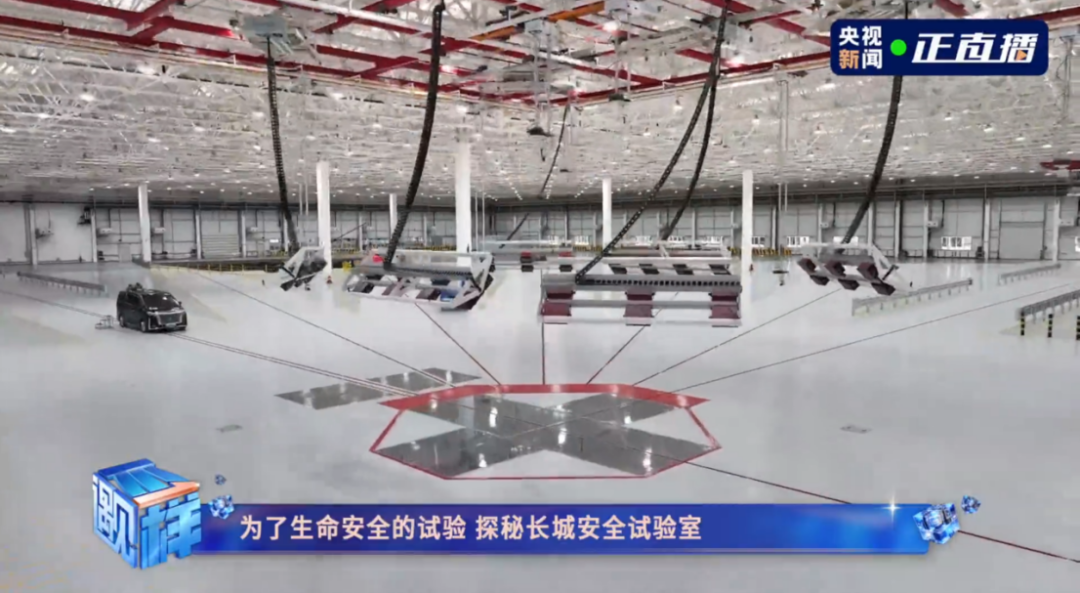
Due to their firm will, in the wave of new energy transformation, when the industry's radical narratives seize the trend, Wei Jianjun and Great Wall Motors have demonstrated a unique sense of rhythm.
Great Wall Motors has achieved a full power layout of fuel, hybrid, plug-in hybrid, pure electric, and hydrogen energy, while highlighting oil-electric synergy and launching the Great Wall Hi4 architecture, offering two-wheel drive energy consumption with four-wheel drive experience, leading the high-end four-wheel drive equalization.
Refusing to walk on one leg is a responsible approach to user needs and also a manifestation of responsibility for the long-term success of the enterprise.
A 'Ecological' Path to High-Quality Development
If Wei Jianjun's spirit is a banner, then the development model of Great Wall Motors is a high-quality development path explored under this banner, serving as a reference for the industry.
How can the manufacturing industry transition from being 'big' to being 'strong'? How can the automotive industry demonstrate global competitiveness? Great Wall Motors has systematic thinking and practice.
On the one hand, it's about industrial upgrading from 'vertical integration' to 'forest ecology'.
In its early years, to escape the dilemma of being constrained by key components, Great Wall Motors embarked on the path of vertical integration. However, it soon discovered the shortcomings of 'greenhouse flowers': the lack of market competition pressure within the internal supporting system led to high costs and lack of innovation.
In 2018, Great Wall Motors made a bold decision: to spin off all its component companies and allow them to compete as independent market entities, bidding alongside international giants.
As mentioned in the People's Daily report, Zhang Dehui, Chairman of Noble Automotive, recalled that 'those times were really difficult,' but it was this 'cutting-edge' move that forced a whole new world into being.
Today, Great Wall Motors-affiliated enterprises such as Honeycomb Energy Creation, Noble Automotive, and Jingcheng Engineering not only won back orders from Great Wall Motors with their solid strength but also successfully entered the global supply chains of international first-tier automakers like BMW, occupying three seats on the list of the top 100 global automotive component manufacturers.
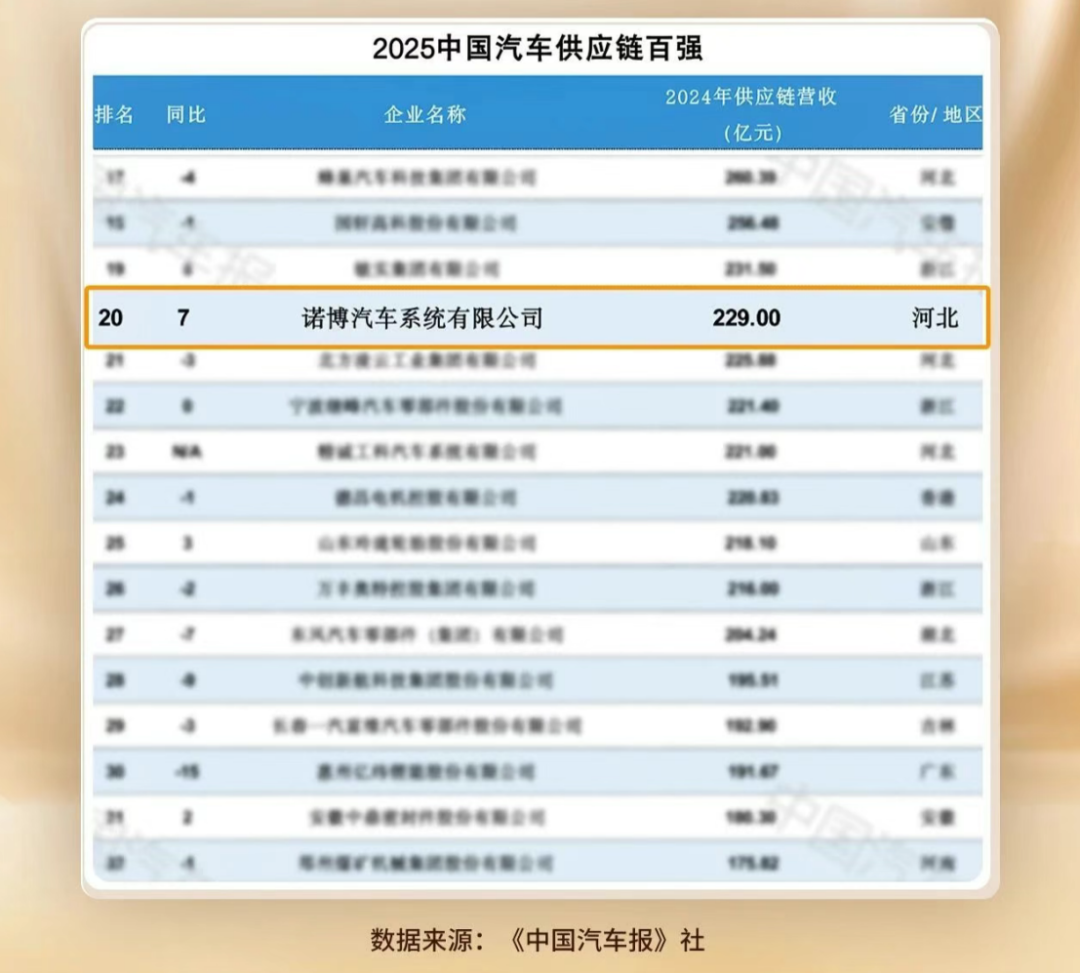
Independence fosters better growth. The enterprises within the ecosystem not only collaborate with each other but also face market challenges independently, ultimately jointly enhancing the overall competitiveness of China's automotive supply chain.
On the other hand, it's about a global leap from 'product going overseas' to 'ecology going overseas'.
In today's world where globalization encounters countercurrents and trade barriers are increasing, how should enterprises 'go out'? Great Wall Motors once again provided a forward-looking answer. Wei Jianjun pointed out: 'Internationalization is not about products going overseas but about brands going overseas; it's not about product exports but about industrial exports.'
Based on this understanding, Great Wall Motors' globalization strategy has evolved from 1.0 (product trade) to 2.0 (direct overseas investment) to 3.0 (full industrial chain ecology going overseas).
Great Wall Motors is no longer satisfied with simply selling cars abroad but is instead building overseas bases integrating R&D, production, supply, sales, and service, shifting from a single export to a full-ecosystem going overseas that encompasses 'research, production, supply, sales, and service'.
From the Rayong New Energy Plant in Thailand to the Sao Paulo Plant in Brazil that will be put into production in the second half of 2025, Great Wall Motors is systematically transplanting Chinese technology, standards, and management models globally, bringing domestic supply chain partners along for the ride.
In Brazil, multiple popular Great Wall models have received high praise from President Lula.
Globally, Great Wall Motors' over 1,400 overseas sales channels are synergizing with its full-power, full-category, and full-grade product layout and profound full-ecosystem layout, reducing overseas operating costs, enhancing anti-risk capabilities, and bringing over 2 million global sales to Great Wall. At the same time, it is exporting the overall strength of China's automotive industry and building an industrial ecosystem centered on Chinese brands globally.
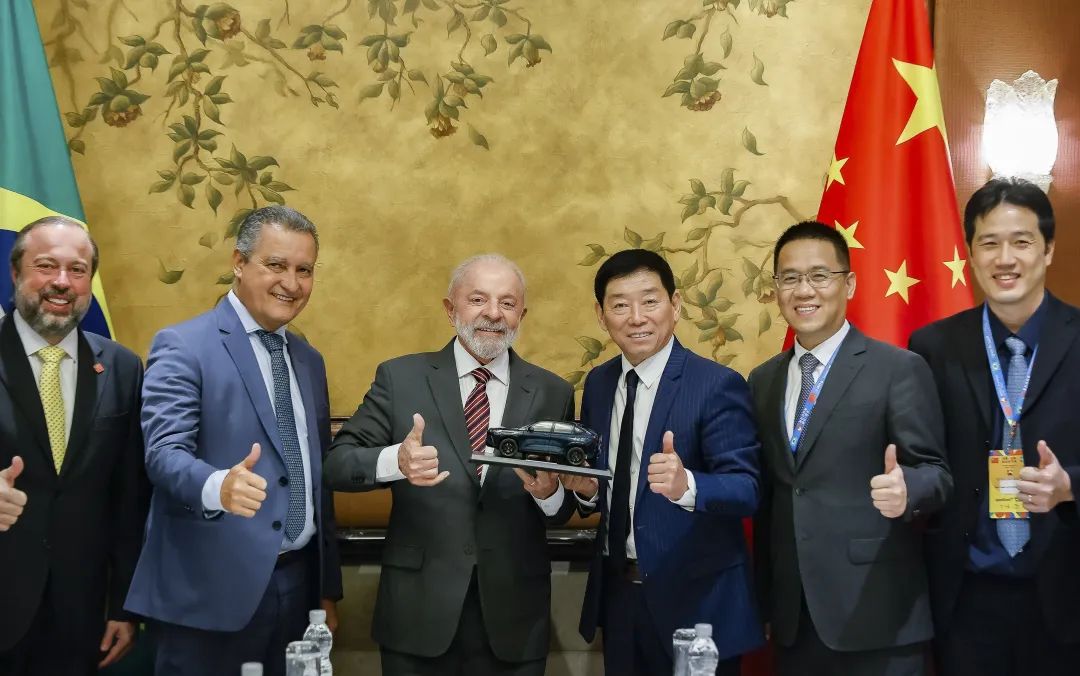
(Brazilian President Lula meets with Wei Jianjun)
This is a higher dimension of globalization and a portrayal of the transformation of Chinese brands from participants in globalization to enablers.
Serving the Nation Through Industry is the Choice of the Times
Returning to the original question: Why Wei Jianjun after Ren Zhengfei?
Because in them, we see the same kind of power to transcend cycles: the ultimate pursuit of self-reliance and self-improvement in technology and a firm belief in long-termism.
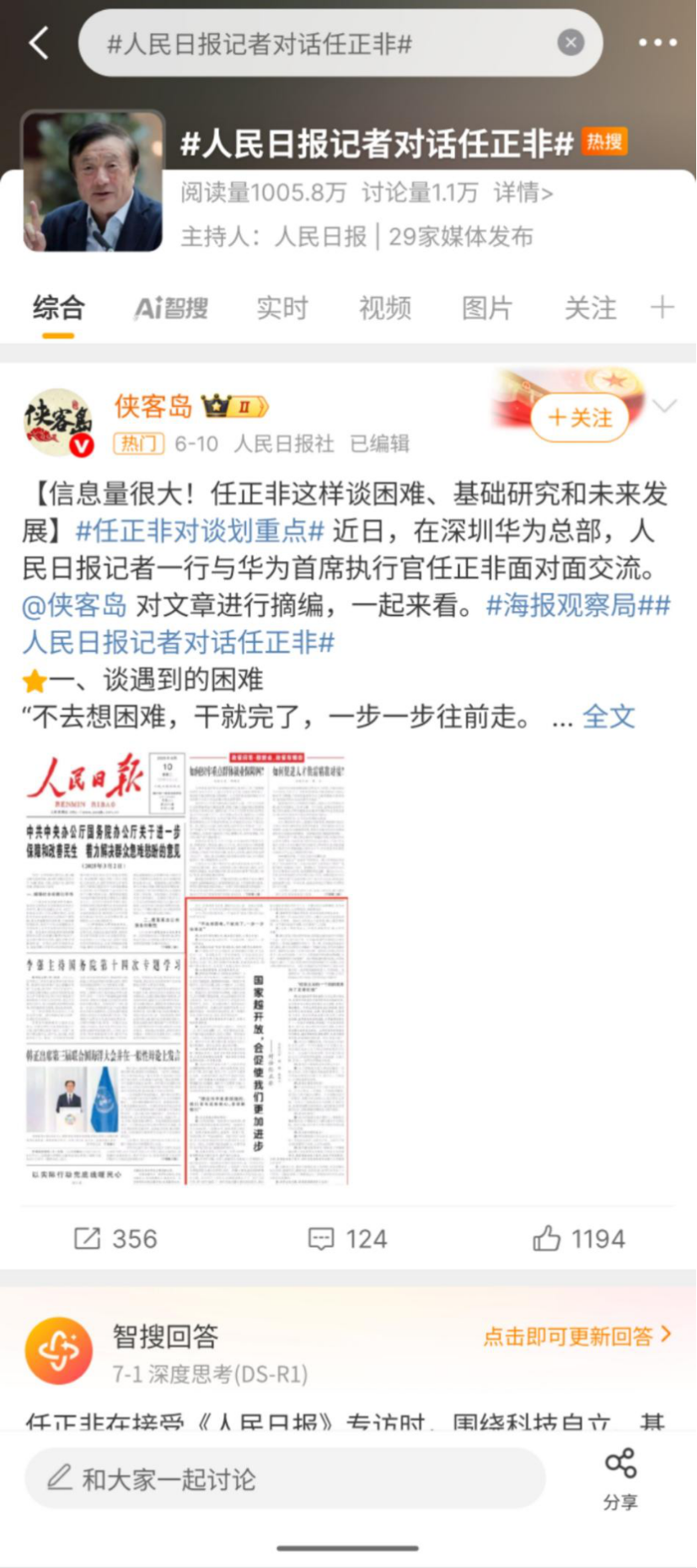
Huawei withstood extreme pressure in cutting-edge technology and contributed to the security of the national information industry; while Great Wall Motors, grounded in the industrial cornerstone of the automotive industry, has explored a path to high-quality development from the independence of core technologies to the globalization of the industrial ecosystem.
Wei Jianjun once said: 'Private entrepreneurs must know where 'home' is, and home is in China; towards home, we must have affection, responsibility, and even more, confidence.'
He is not only concerned about his own enterprise but also about the healthy ecology of the entire industry.
Criticizing current malpractices is to sound the alarm for the industry; promoting component companies to become independent in the market is to activate the vitality of the entire supply chain. Great Wall has even launched a special job fair for talents over 35 years old because it is meaningful for boosting social confidence, and Great Wall is willing to fulfill its social responsibility as a corporate citizen.
Thus, it can be seen that in the current era, the pattern of serving the nation through industry and the deep sentiment of 'home in China' are actually of the same origin – entrepreneurs who are in sync with the nation are the backbone of society, which is also Wei Jianjun's viewpoint.
This pattern determines the depth of his perception of issues and ultimately establishes the path that Great Wall insists on building core capabilities. A century-old foundation comes from hammering and nailing, and Great Wall's long-termism is therefore even more grounded.
The front-page report of People's Daily focusing on Great Wall is an elaboration: facing changes in the environment, the future of the economy and industry requires more doers like Wei Jianjun and more industrial backbones like Great Wall Motors that are down-to-earth, look up at the stars, and are committed to strengthening and expanding national brands.
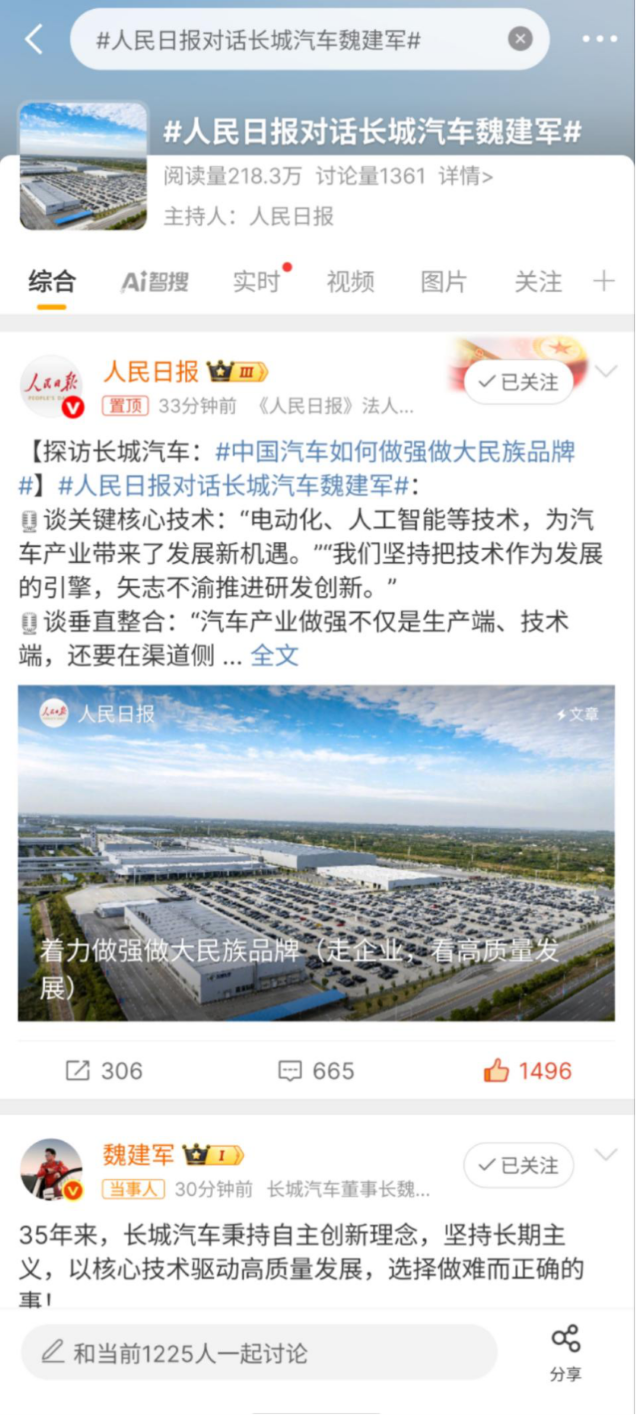
Rather than saying this is a kind of attention, it is a common commendation for all Chinese entrepreneurs who persevere in industry, insist on innovation, and have a deep affection for their country. Honestly, they put in real effort and do difficult but right things. They are the greatest source of confidence for China to become a powerful automotive and even manufacturing nation.
Source: Pinecone Finance

